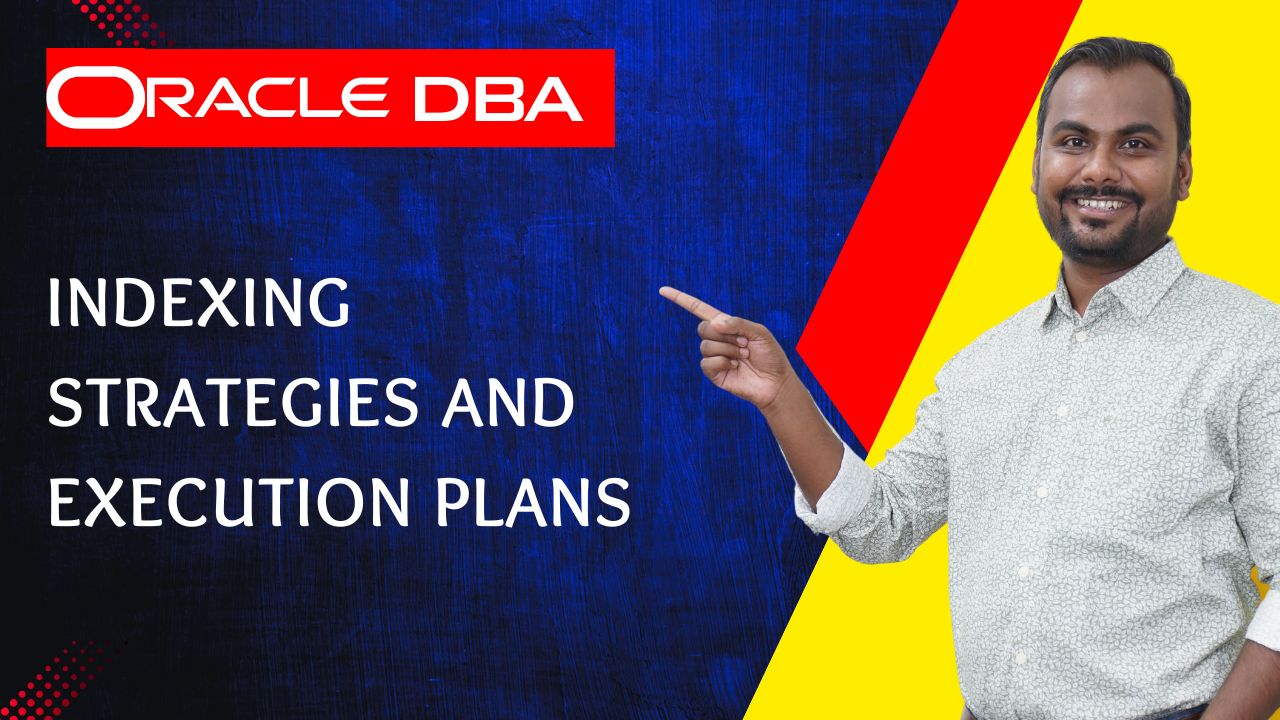Indexing Strategies and Execution Plans in Oracle Database
The Oracle DBA’s Guide: Mastering Indexing Strategies and Execution Plans
As an Oracle Database Administrator (DBA), performance tuning is one of your most critical responsibilities. Two major components that directly impact query performance are indexes and execution plans. Understanding how to design effective indexing strategies and interpret execution plans can drastically improve query speed and overall system efficiency.
This blog will explore Oracle indexing techniques, how indexes affect the optimizer, and how to analyze execution plans to tune SQL queries effectively.
1. Why Indexing Matters
Indexes are database objects that speed up data retrieval by providing a quick lookup path for rows in a table. Without proper indexing, Oracle may perform full table scans, which can be costly for large datasets.
Types of Indexes in Oracle
- B-Tree Index: Ideal for high-cardinality columns (many unique values).
- Bitmap Index: Best for low-cardinality columns (few distinct values).
- Function-Based Index: Useful when queries involve expressions or functions.
- Composite Index: Covers multiple columns for multi-column filtering.
Tip: Avoid over-indexing. Too many indexes can slow down DML operations (INSERT, UPDATE, DELETE).
2. Indexing Strategies
- Choose the Right Columns: Index columns frequently used in WHERE clauses, JOIN conditions, and ORDER BY.
- Use Composite Indexes Wisely: Place the most selective column first.
- Monitor Index Usage: Use
V$OBJECT_USAGEto check if indexes are being used. - Consider Partitioned Indexes: For large partitioned tables, local indexes can improve performance.
3. Understanding Execution Plans
An execution plan shows how Oracle will execute a SQL statement. It includes steps like table scans, index scans, joins, and sort operations.
How to Generate Execution Plans
- EXPLAIN PLAN:
EXPLAIN PLAN FOR SELECT * FROM employees WHERE departmentid = 10; SELECT * FROM TABLE(DBMSXPLAN.DISPLAY);
- AUTOTRACE in SQL*Plus:
SET AUTOTRACE ON SELECT * FROM employees WHERE department_id = 10;
- DBMS_XPLAN: Provides detailed insights into cost, cardinality, and access paths.
4. Key Components of Execution Plans
-
Operation Description TABLE ACCESS FULL Full table scan; used when no index is applied. INDEX RANGE SCAN Scans a range of index entries. Efficient for selective queries. INDEX UNIQUE SCAN Retrieves a single row from a unique index. INDEX FAST FULL SCAN Reads all index blocks (like a full table scan but faster). NESTED LOOPS / HASH JOIN Different join methods chosen by the optimizer.
5. Tools to Analyze and Tune Execution Plans
-
DBMS_XPLAN Package – For plan display and analysis.
-
SQL Developer – GUI view of execution plans.
-
AWR & ASH Reports – Identify high-cost SQLs.
-
SQL Tuning Advisor – Provides index and rewrite recommendations.
-
SQL Monitor (OEM) – Live query monitoring for real-time performance.
Conclusion
Indexes and execution plans are the foundation of Oracle SQL tuning.
A well-designed indexing strategy can speed up queries dramatically, while a poor one can degrade performance. By learning how to analyze execution plans, use the right index types, and keep statistics up to date, DBAs can ensure their databases run efficiently and reliab
Explore more with Learnomate Technologies!
Want to see how we teach?
Head over to our YouTube channel for insights, tutorials, and tech breakdowns:
To know more about our courses, offerings, and team:
Visit our official website:
Interested in mastering Oracle Database Administration?
Check out our comprehensive Oracle DBA Training program here:
Want to explore more tech topics?
Check out our detailed blog posts here:
And hey, I’d love to stay connected with you personally!

Thanks for reading, and here’s to designing smarter, faster, and more secure networks on Azure. Let’s keep learning together!







